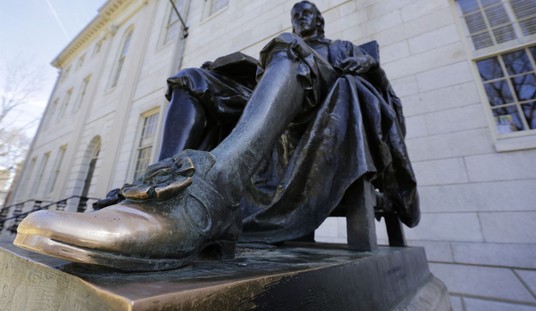
Recently over at Talking Points Memo, an opinion piece titled, “Why Do Poor People ‘Waste’ Money On Luxury Goods,” sought to set the record straight about, well, exactly what the title stated. “We hates us some poor people,” begins author Tressie McMillan Cottom; a disturbing start to a post that offers up not much more than an excuse to keep spending money you don’t have. As a former poor, the article is angering. Cottom’s advice is bad and based on life experiences that aren’t entirely applicable to the country we live in today. And while Cottom may prefer to believe that anyone not poor hates poor people, I’m going to offer some actual good advice to those people I supposedly hate.
To begin, Cottom explains her roots growing up in a poor, black family in the South. While she seems to indicate that her circumstances were, in part, due to the color of her family’s skin, her youth sounds an awful lot like my own. Talking “like white folks” was seen as a “privilege” by her family that supposedly helped them get ahead. Maybe it did, but certainly talking like a white person never helped my family get ahead. We were poor and we stayed poor, in large part, due to the mentality that Cottom seems to have taken with her. But more on that later.
After recounting her mother’s success fooling the “gatekeepers” by “dressing and speaking well,” Cottom goes on to explain how she navigated the waters of trying to survive as a poor.
… I have half a PhD and I support myself aping the white male privileged life of the mind. It’s a mixed bag. Of course, the trick is you can never know the counterfactual of your life. There is no evidence of access denied. Who knows what I was not granted for not enacting the right status behaviors or symbols at the right time for an agreeable authority? Respectability rewards are a crap-shoot but we do what we can within the limits of the constraints imposed by a complex set of structural and social interactions designed to limit access to status, wealth, and power.
In other words, Cottom believes she (and other poors) may be missing some opportunities (although she doesn’t have evidence) because the world is set up to limit access to not being poor. Hello, victim mentality! I, and many others far beyond my meager wealth, beg to differ. We do not live in a country where the poor must stay poor because the wealthy just won’t have it otherwise. Our country actually gives money to the poor taken through taxes by wealthy people who would much rather you have a job than be forced to pay for you not having one. Perpetuating the myth that the wealthy are in some exclusive club you won’t have access to unless you spend $2,500 on a purse does a serious disservice to poor people who may be seriously considering Cottoms advice.
The idiom of being your own worst enemy comes to mind. There is a mentality within the poor community that keeps many poor. Believing the world is against you is a big part of the problem. Buying status symbols to get past the “gatekeepers” or “fit in,” another excuse posited by Cottom, is another part of why poor people end up staying poor. Her post contains more than one story of dealing with awful people who judge others by what they are wearing and her conclusion seems to be that trying to fit into their narrow view is how to get ahead; as if being a member of that community is something you should aspire to do. Who wants to hang out with those people? Can you imagine working with them? This information will be mind-blowing for those reading who may think like Cottom, you may want to sit down. Ready? There is an entire population of people who are not poor AND are not jerks! Their mommas raised them with morals and values beyond what designer you are wearing.
But lets say, for the sake of the argument, that you do want to look extra nice for that job interview. Or lets say you know that designer clothes are often made better and last longer than less expensive options. Either way, buying retail is the last thing you should do. I’m going to give away my secrets here but I suspect everyone I know does the same thing. TJ Maxx, Marshall’s and even Goodwill. When I was poor I never stepped into those stores. Pride kept me at the mall, wasting money on stylish pieces that I could have gotten for much less elsewhere. I’ve seen and bought some serious labels that I wouldn’t pay retail for even if I was rich because $100 for a shirt is just stupid. There is one exception to my refusal to pay for overpriced clothing and that is Anthropologie. Their style is unique and I can’t seem to find it outside of the actual store. That said, you can find me in the always overflowing sale section.
Something else? Those rich people you’re so worried about impressing, they can’t tell the difference. Once, as my husband was interviewing Arianna Huffington, her friend standing by asked me where I got my adorable bag. You should have seen the look on her face when I said, “Bath and Body Works.” I think she died a little inside.
For the Christians out there, of which I know many are poor, there is an additionally side to consider. It’s called being good stewards with God’s money. Because, truly, it’s all His loaned to us as blessings. There’s actually an entire story in the Bible dedicated to how He feels about you wasting His money.
14 “For it will be like a man going on a journey, who called his servants[a] and entrusted to them his property. 15 To one he gave five talents,[b] to another two, to another one, to each according to his ability. Then he went away. 16 He who had received the five talents went at once and traded with them, and he made five talents more. 17 So also he who had the two talents made two talents more. 18 But he who had received the one talent went and dug in the ground and hid his master’s money. 19 Now after a long time the master of those servants came and settled accounts with them. 20 And he who had received the five talents came forward, bringing five talents more, saying, ‘Master, you delivered to me five talents; here I have made five talents more.’ 21 His master said to him, ‘Well done, good and faithful servant.[c] You have been faithful over a little; I will set you over much. Enter into the joy of your master.’ 22 And he also who had the two talents came forward, saying, ‘Master, you delivered to me two talents; here I have made two talents more.’ 23 His master said to him, ‘Well done, good and faithful servant. You have been faithful over a little; I will set you over much. Enter into the joy of your master.’ 24 He also who had received the one talent came forward, saying, ‘Master, I knew you to be a hard man, reaping where you did not sow, and gathering where you scattered no seed, 25 so I was afraid, and I went and hid your talent in the ground. Here you have what is yours.’ 26 But his master answered him, ‘You wicked and slothful servant! You knew that I reap where I have not sown and gather where I scattered no seed? 27 Then you ought to have invested my money with the bankers, and at my coming I should have received what was my own with interest. 28 So take the talent from him and give it to him who has the ten talents. 29 For to everyone who has will more be given, and he will have an abundance. But from the one who has not, even what he has will be taken away. 30 And cast the worthless servant into the outer darkness. In that place there will be weeping and gnashing of teeth.’ – Matthew 25:14-30 ESV
I’ve wasted God’s money and I’ve been a good steward – I promise you that being a good steward has already yielded greater rewards than those $100 heels that the cat peed on anyway.
Cottom ends her post by stating that only a poor person can talk about being poor, which begs the question of how poor she is currently working as a Graduate Fellow at the Center for Poverty Research at UC-Davis and writing a bi-weekly post at Slate.
If you change the conditions of your not-poor status, you change everything you know as a result of being a not-poor. You have no idea what you would do if you were poor until you are poor. And not intermittently poor or formerly not-poor, but born poor, expected to be poor and treated by bureaucracies, gatekeepers and well-meaning respectability authorities as inherently poor.
Actually, if you manage to see through the lies people like Cottom spread and make it out of being poor, you are exactly the person that should be talking about being poor. You’ve gained wisdom that can help others – what kind of person are you if you keep that knowledge to yourself?
Additionally, the country we grew up in is no more. Can’t afford that degree that comes with a mountain of debt? Get educated for free online. Popular grocery store prices making it hard to feed the kids? Shop at Walmart or, my new favorite, Aldi’s. How can I justify spending $3.00 on a loaf of bread when I can spend $1 at Aldi’s? They even have organic options if that’s your thing. As a matter of fact, last time I was there I noticed more than one BMW and I parked next to an Audi SUV.
There is nothing wrong with being smart with your money. There is everything wrong with making excuses as to why it’s okay to spend beyond your means. Achieving wealth isn’t about what you have or don’t have, it’s about changing the way you think. And once you change the way you think, you will realize that you alone bear the responsibility of changing your life. But don’t think for a minute that you are alone and no one wants to help you. If you reach out to those who see past clothing and color, there are plenty of hands waiting to help.













Join the conversation as a VIP Member